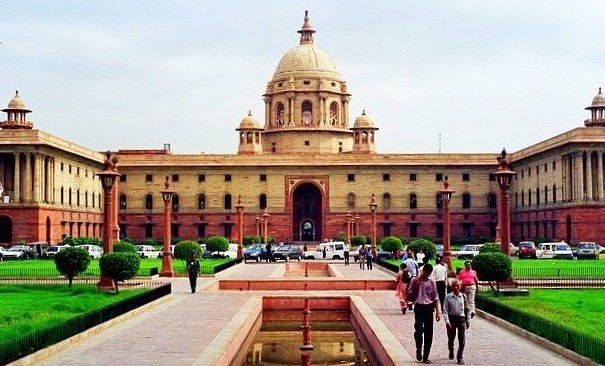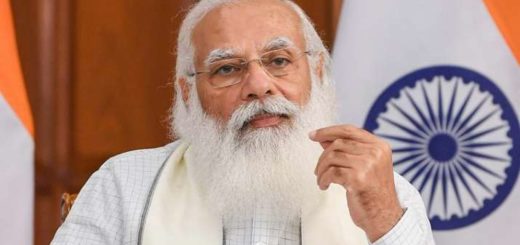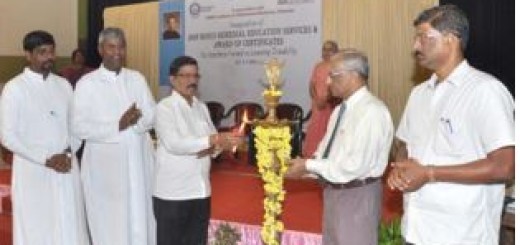CHURCH MARRIAGE ANNULMENT INVALID: SUPREME COURT OF INDIA

(Note: Of course this verdict from the Supreme Court of India will be opposed tooth-and-nail by the Catholic Church. Will it oppose? It is the BIG question. It can also be considered as a blessing in disguise: that is, depriving the church of an authority which they never had in fact. Theologically and historically sacraments got developed in the church after Constantine took over the church and most of them, they say, were introduced by the ruling class – the Clergy – to control the laity with a tight grip of law. The “grip” becomes tighter and more binding when people are made to believe, all laws and regulations issued by the clergy are divinely ordained. Today people question and so the hierarchical church is on a weak wicket. Already church baptism and wedding ceased to have any binding in civil court since birth and marriages have to be immediately registered in civil forum. All for the good. james kottoor, editor)
New Delhi: The Supreme Court of India says marriage annulment granted by church courts has no legal sanctity and those remarrying after obtaining such a decree would commit an offence.
The July 4 observation from the apex court will have far reaching and serious consequences for Catholics in India, who get their marriages annulled by diocesan ecclesiastical tribunals.
A bench of Chief Justice T. S. Thakur and Justice D. Y. Chandrachud made this observation while hearing a petition filed by Clarence Pais, a Bengaluru-based Catholic lawyer, who sought legal sanctity for divorce decrees granted by church courts.
Pais had pleaded that marriage and divorce among Catholics were governed by the church and in the absence of its recognition by law, unsuspecting men were facing prosecution for bigamy, reports The Times of India.
Additional solicitor general Neeraj Kishan Kaul said the SC ruling in a case in 1996 had settled the issue in the Molly Joseph versus George Sebastian case.
The court then said that “unless Divorce Act recognizes the jurisdiction, authority or power of ecclesiastical tribunal (sometimes known as church court), any order or decree passed by such tribunal cannot be binding on the courts which have been recognized under the provisions of the Divorce Act to exercise power in respect of granting divorce and adjudicating in respect of matrimonial matters.”
After the bench went through the judgment, it told Pais’s counsel Soli J Sorabjee, “Unless a divorce decree is granted by the competent court, the decrees granted by church court are not valid. Any man who remarries after divorce decree granted by church court will be committing an offence.”
Finding the going tough, Sorabjee said he just wanted to request an adjournment for a detailed hearing later. Though the court was reluctant, it decided to accept the former attorney general’s request. The petitioner had said hundreds of applications seeking dissolution of marriage were pending before church courts.
The petitioner had said, “The Code of Canon Law regulates and provides for the solemnization of marriage by the parish priest of a church, as also declaration of nullity of marriage. The Christian Marriage Act provides for the solemnization of marriage in a Catholic church in accordance with the provisions of the canon law and declaration of its nullity is regulated by the Code of Canon Law.
“If criminal courts, while considering prosecution under IPC Section 494 (bigamy), reject the application of canon law as the personal law of the Catholics, a very serious result will follow and hundreds of spouses under the second marriage will have to face prosecution, jail and fine.
“Canon law is the personal law of the Catholics of India and canon law has to be applied and enforced by a criminal court while deciding a case under Section 494 of the IPC and sanction of prosecution considered for alleged bigamy of a Catholic spouse who has married after obtaining a decree for nullity of the first marriage from the ecclesiastical tribunal.”

















Regarding Dr Kottoor's comment "Of course this verdict from the Supreme Court of India will be opposed tooth-and-nail by the Catholic Church", the answer is NO, the Catholic Church cannot challenge this judgement. This is because it did not challenge an earlier judgement dated 10 October 2012 of Kerala High Court passed by Justice K Vinod Chandran who.ruled that parishioners have rights over church property while hearing a case over property rights between parishioners and church authorities of 'Mukkad Thirukudumba' Church.
WHAT HE SAID FURTHER WOULD HAVE A PERMANENT IMPACT ON THE POWERS OF THE INDIAN CHURCH TO CONTROL THE PERSONAL LIVES OF THE FAITHFUL. HE SAID: "IT SHOULDN'T BE UNDERSTOOD THAT CANON LAW WOULD OVERRIDE THE CIVIL LAW OF THE LAND. The Canon Law can have theological or ecclesiastical implication to the parties, but such personal law cannot have any legal impact" the judge quoted from a full bench decision of the high court that was later upheld by the Supreme Court.
The 4th July 2016 judgement of the Supreme Court when it said that marriage annulment granted by church courts (Ecclesiastical Tribunals) has no legal sanctity and those remarrying after obtaining such a decree would commit an offence, must have flowed from the October 2012 ruling on limitation of Canon Law. The logic is marriage, separation, divorce, alimony and inheritance to property – all come under civil law as they affect personal and public lives, and not under Canon Law which is strictly religious and at times appears to veer into civil law.
It is not that the Indian Church did not know expect this judgement. So long it was hoodwinking its flock into believing that it had unbridled power in controlling their lives especially their married lives. Now because of this judgement it has to wind up all its Ecclesiastical Tribunal offices and suddenly its almighty Judicial Vicars have become totally powerless! Now the Indian Church has to clearly instruct during Marriage Preparation Classes that in case of problems which might lead to divorce, couples have to get the matter sorted out in courts of law. Earlier the Indian Church would stop sacraments and the Holy Communion for couples who used to get divorce and remarried in courts, without going through the self-styled Church Annulment process.
With the Supreme Court having pulled the carpet from the under the feet of the Indian Church, let us see whether it cries foul and calls the judgement infringment on minority rights! It is so used to Lording it over including murky admission procedure of its Catholic colleges where there is no official quota for Catholic students who are refused admission in their own colleges without being given the reason therefor. The authorities consider themselves above transparency and accountability and behave like Czars as does the principal of an autonomous Catholic university in Calcutta.
For the first time, Cardinal Alencherry has quickly read the writing on the wall and supported Namo on the introduction of Uniform Civil Code (UCC) which will cover all civil rights (marriage, divorce, maintenance, right to property, etc) irrespective of one's religion, caste, creed and colour of skin.
It will also do away with the arbitrary Muslim Personal Law Board which permits Triple Talaq and four marriages and is not recognised even in most Muslim countries which are governed by UCC.
Interestingly Christian and Muslim leaders who oppose introduction of UCC, have no problem in following a common civil code when they or their kith and kin are in the USA, UK, Australia, EU and Turkey.
Isaac Gomes